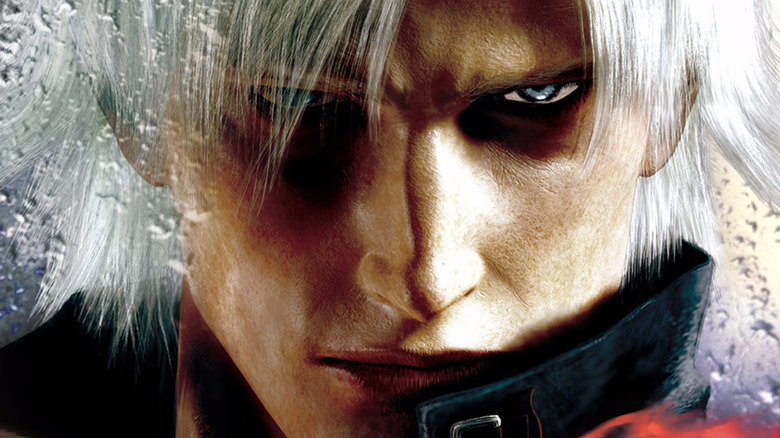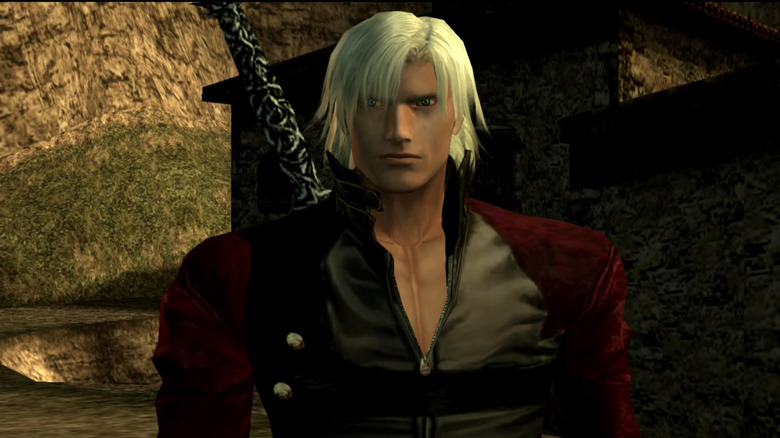A Rushed Development Led To Devil May Cry 2's Mediocre Results
The "Devil May Cry" franchise may have reached legendary status in the two decades it's been around, but that likely wasn't expected after the release of 2003's "Devil May Cry 2." Thanks to a number of divisive creative changes, it remains the most poorly received game in the series and is widely considered by fans as the worst. As if the changes to the gameplay and style weren't bad enough, "Devil May Cry 2" was also the victim of a rushed development that seemingly compounded its many issues.
Once fans finally got their hands on "Devil May Cry 2" in January 2003, the first change they noticed came in the form of the protagonist. Although Dante made his return for the sequel, he wasn't the same cocky, smooth-talking Dante that fans grew to love from the original. Instead, the sequel portrayed him as much more serious, leading some fans to claim he lacked personality and charm.
Additionally, as Eurogamer noted when the game first came out, it was significantly easier than the original. In this interview with "DMC2" producer Tsuyoshi Tanaka, he explained that the game was made easier to make the harder modes easier to unlock upon the first completion of the story.
Unfortunately, making such drastic changes in such a short amount of time would prove difficult for the studio.
DMC2 was put in new hands and given minimal development time
The original "Devil May Cry" was released August 23, 2001. Less than a year and a half later on January 25, 2003, the sequel came out. When asked by Eurogamer why the sequel was made so quickly, Tanaka said it was a priority to "get it out while the awareness and popularity were still high." As a result, the development of the sequel began immediately.
Had "Devil May Cry 2" been given to Capcom Production Studio 4 — the studio behind the original — that may have been more feasible. Instead, Capcom chose to put "DMC2" in the hands of Studio 1, a studio that primarily produced arcade games at the time. According to Den of Geek, many members of Studio 1 were also tasked with handling other projects in addition to "DMC2." Because of the studio's relative inexperience with console games, stretching them thin led to slow development.
Just six months away from the release date, the original director of "DMC2" was out, and in stepped Hideaki Itsuno, another Capcom director. When he took over, as he described in another Eurogamer interview, "next to nothing had been implemented yet." Having to produce an entire video game in six months, is no mean feat — it's easy to see why the game wasn't as successful as its predecessor.
Despite the disastrous development, the game miraculously hit its launch date and Itsuno stuck with "Devil May Cry." He would go on to helm the rest of the franchise — including the bestselling "Devil May Cry 5."


